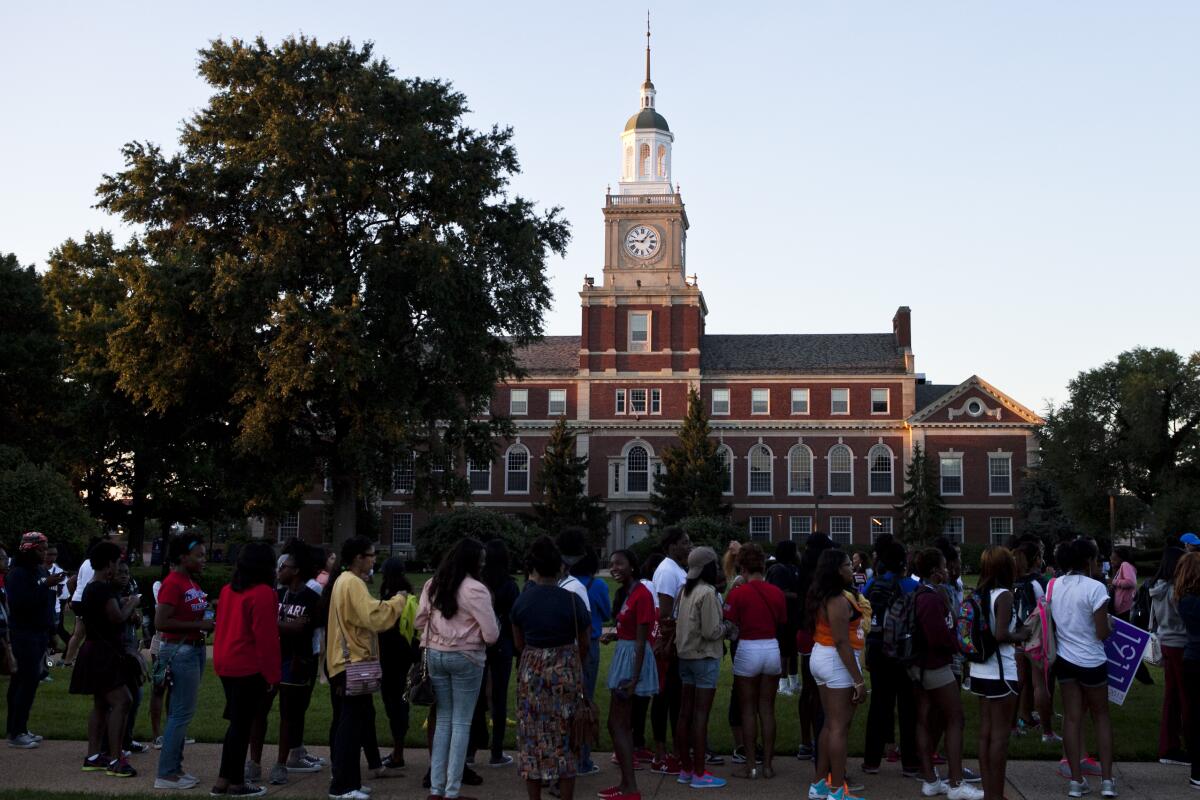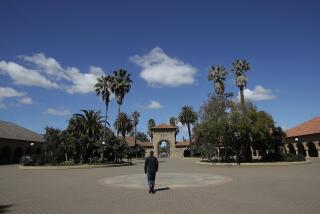Op-Ed: After starving Black colleges of funding for decades, government should pay up

Quick: Name a historically Black college or university. Most people would list Howard, Morehouse, Spelman or Hampton. They’re not wrong — but they are part of the problem faced by the other 103 HBCUs.
The top four receive the most media attention and donations, particularly after the spotlight of Black Lives Matter over the past year. But many others need attention and funding after years of financial struggle. As in all of higher education, their costs have steadily risen, but unlike many private colleges they can’t raise tuition steeply without excluding many students they aim to serve. And although some federal funding increases have flowed in recent years, the damage was already done from a long period of cuts. Federal dollars for HBCUs fell 42% between 2003 and 2015.
I realized the gravity of the situation when a friend of mine was told by school officials and her parents to clear out her dorm before the winter break of 2019 and start looking for a new college, because the HBCU she attended, Bennett College in North Carolina, was at risk of losing accreditation and closing. That shouldn’t be a part of anyone’s college experience.
Many small, private, historically Black colleges have struggled financially, which has sometimes put accreditation in doubt. They rely on ongoing donations, because their endowments are not wealthy enough to sustain operations. Last year, the combined endowment of all HBCUs was less than $4 billion, compared with Harvard University’s $42 billion. Even many public HBCUs are at risk because they have been chronically shortchanged in state funding.
The nation’s 107 historically Black colleges and universities, both public and private, have a rich legacy of educating African Americans at a time when no one else would, dating back to 1837. They have given generations of Black men and women a space to flourish and educate themselves to better serve their communities. The mission remains crucial today, and they need all the help they can get.
Many of these institutions have accumulated crushing debts. In April the U.S. Department of Education forgave $1.6 billion owed by 45 HBCUs. This is the sort of one-time boost that many institutions need in order to get back on their feet. The federal government should continue to seek such paths to support these schools, especially because they were deprived for so long.
We now know that some of the historically Black schools have also suffered under illegally skewed state funding. Four HBCUs in Maryland recently won a lawsuit against the state, which owes them $577 million that was inappropriately diverted for decades. In 2001, a similar case in Mississippi ended with a settlement of $500 million — after dragging out for 26 years. Researchers looking closely at a brief span, from 2010-12, found that historically Black land-grant universities in 17 states were denied $56 million in state funding that they were owed. Another tally of arrears totals $1.1 billion so far, owed to 50 colleges.
These funding deficits were not small or isolated. They cut deeply, and the schools will struggle to recover. States should pay what they owe from years past and ensure longer-term structural change in funding to help the schools survive.
Finally, private donations must be part of the solution. The colleges and universities with the most stable finances operate largely on revenue from vast endowments. Recent high-profile gifts, like $500 million from MacKenzie Scott and $120 million from Reed Hastings and Patty Quillin, show that there are donors ready to support these institutions. Future dollars will make the biggest difference if spread among smaller, overlooked schools.
HBCUs do important work, and they will continue to do it as long as they can. It’s up to lawmakers and donors to give them the chance.
Gabrielle Chenault has been an intern at the Los Angeles Times and will be entering the graduate journalism program at USC in the fall.
More to Read
A cure for the common opinion
Get thought-provoking perspectives with our weekly newsletter.
You may occasionally receive promotional content from the Los Angeles Times.










